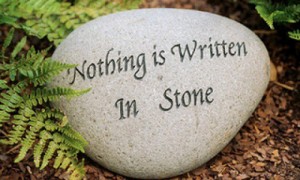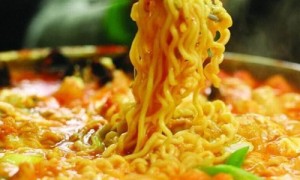The English Language is full of food idioms to cover most situations.
英语中有很多和食物相关的成语。
The list is endless, so I’ve chosen 10 food and food-related idioms here to show you what they mean and how you could use them in a sentence.
相关成语很多。这里挑选了10个食物和相关的成语,你可以在句子中使用。
1. “As cool as a cucumber” – to be calm, not nervous or anxious
1. “As cool as a cucumber”——冷静,不紧张、焦虑
Look at Jason. He is as cool as a cucumber. He never gets nervous before an interview.
看看杰森,他真冷静。在面试前他从不紧张。
2. “to bite the hand that feeds you” – to harm someone who does good things for you.
2. “to bite the hand that feeds you”——恩将仇报

I wouldn’t annoy your Boss. You don’t want to bite the hand that feeds you.
我不会惹恼你的老板。我不想恩将仇报。
3. “to butter someone up” – to flatter someone so that you can win their friendship or favour
3. “to butter someone up”——通过奉承某人,赢得他们的友谊或是得到帮助
Ever since the new Sales Director joined the company, she’s been buttering him up.
自从新的销售总监加入之后,她一直在拍他马屁。
4. “to cheese someone off” (BrE) – To annoy someone
4. “to cheese someone off”(英式英语)——惹怒某人
Will you please stop doing that? You’re really cheesing me off.
你能不能别这么做了?你真的惹我生气了。
5. “Big Cheese” – an important person, a leader
5. “Big Cheese”——重要的人物,领导
Who’s the big cheese in this organisation?
谁是单位里的一把手?
6. “Carrot and Stick” – to reward someone who does what you want or punish them if they don’t
6. “Carrot and Stick”——萝卜大棒政策,奖励按照你指示做的人,惩罚不遵守的人
He likes to use the carrot and stick approach when managing his team.
他喜欢用“萝卜大棒”政策管理他的团队。
7. “to bite off more than you can chew” – try to do more than you can manage
7. “to bite off more than you can chew”——贪多嚼不烂,试图做超出能力范围之外的事
With this new job, I’m afraid Susan has bitten off more than she can chew.
这份新工作恐怕超出了苏珊能力范围之外。
8. “to cut the mustard” – to succeed, do something well
8. “to cut the mustard”——成功,做好某事
He did not last long in the job. He just didn’t cut the mustard.
他在这份工作干不长久。他没能做好这份工作。
9. “to be cheesed off” – to be annoyed or irritated
9. “to be cheesed off”——被惹恼了
I have to complete this report by tonight. I’m so cheesed off.
我今晚之前要完成这份报告。烦死了。
10. “To eat humble pie” – to admit your mistake and apologize
10. “To eat humble pie”——承认错误,道歉
Brian had to eat humble pie when he realised the mistakes in the budget report.
布莱恩意识到他在预算报告上犯了错,因此不得不道歉。







